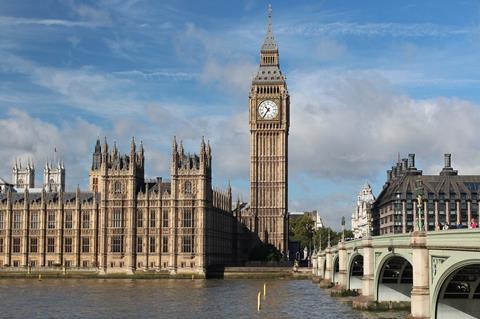
UK: The House of Commons Transport Select Committee has launched its pre-legislative scrutiny of the government’s draft Rail Reform Bill, inviting experts to share their views.
The Committee will examine the draft bill’s proposals and make recommendations to the government on how the bill might be improved; the inquiry relates to the scope of the draft legislation, and not to rail reform more generally.
Call for evidence
The Committee welcomes written submissions which address at least one of the following questions or make suggestions for amendments:
- If enacted, would the draft bill provide the necessary legislative foundations for an Integrated Rail Body with franchising powers (Great British Railways), as envisioned in the Plan for Rail?
- Will the integrated rail body as proposed achieve the government’s aim of a ‘guiding mind’, providing: (i) better accountability, (ii) more reliable services, (iii) greater efficiency, and (iv) coordinated growth, across both passenger and freight sectors?
- Would the provisions of the draft bill establish an IRB with the independence and accountability to achieve its aims? If not, what amendments would be needed?
- Are the arrangements set out for the granting and amendment of the IRB’s licence and the inclusion of specific conditions within that licence appropriate?
- What will be the effect of the requirement on the IRB to prepare an annual report setting out what it has done to increase private sector involvement in the running of railway services?
- What arrangements should be put in place for scrutiny of the IRB’s business plan?
- Are there further elements of the government’s aims for the IRB that should be given a statutory footing?
- Are the interests of passengers and freight users sufficiently promoted by the provisions of the draft bill?
- Does the draft bill make effective provision for the role of the Office of Rail & Road?
- What assessment should be made of the draft Bill’s provision that the Scottish and Welsh governments may arrange for the IRB to exercise their devolved franchising powers?
- What will be the effect of the implementation in UK law of the Luxembourg Rail Protocol? Is the range of powers granted to the Secretary of State in clause 15 necessary to achieve the aims of the Protocol?
- Are the delegated powers envisaged by the draft bill necessary and sufficient to meet its aims?
- What lessons should be learned from previous legislative changes to the institutional architecture of the rail sector?
- Are there further provisions within the draft bill that the Committee should focus its scrutiny on?
‘Proposed reforms, like giving Great British Railways oversight of Britain’s rail, have been broadly supported by many in the sector and can help give passengers and freight customers the certainty that they need’, said Committee Chair Iain Stewart on February 28.
’We will now examine whether the draft bill will pass muster in promoting positive change in the sector and see if it will allow for sufficient transparency and scrutiny of GBR once it is fully operational.
‘My cross-party colleagues and I on the Transport Committee are looking forward to hearing the views of rail industry stakeholders on the draft bill. We’re keen to get started on scrutinising it and hope to report on our conclusions ahead of Parliament’s summer recess.’



